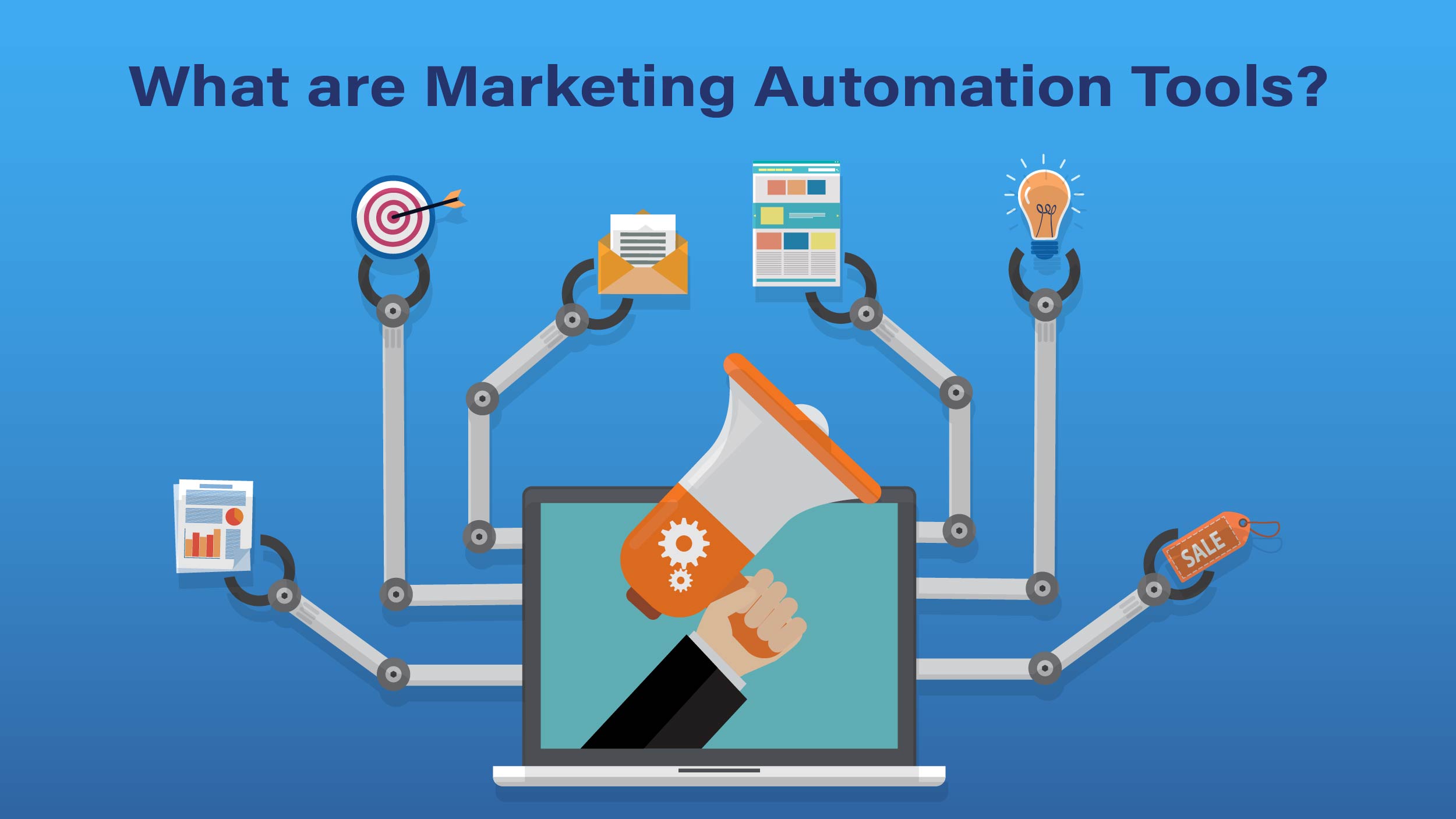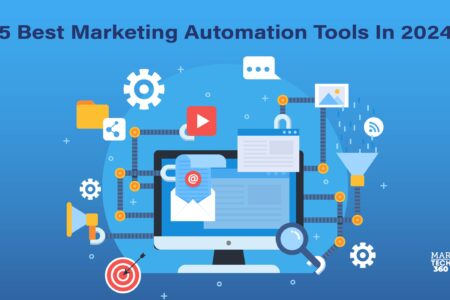Choosing a marketing automation tool can be overwhelming for many companies. Understanding the differences between these tools and navigating the industry landscape can be a challenging task. We faced the same dilemma a while ago when we were in search of a marketing automation tool.
Through extensive research, conversations with analysts, and in-depth discussions with company representatives, we gained valuable insights. However, given the wide variety of marketing automation technologies available, both marketers and decision-makers must carefully consider their needs and choose the best tool.
Here are our top 5 picks of the best marketing automation tools and platforms for small businesses. Implement these tools in your business to save time and increase your business growth.
What are Marketing Automation Tools?

According to Statista, the marketing automation software market anticipates this annual figure to exceed 13.7 billion dollars by 2030, more than doubling the current expectations. This statistic explains why 46% of marketers are more inclined to report the effectiveness of their strategy by using marketing automation software.
The present marketing automation sector is cluttered, making it difficult for organizations to choose the best technology for their needs. There are over 100 platforms available that cover different use cases, verticals, budgets, etc.
Here are some noteworthy examples of marketing automation software’s use in contemporary digital marketing to help make things clearer:
Email marketing: lead scores, events, and user online behavior serve as the automatic triggers for email mailings. Email deliverability, branding, and customization can all benefit from automation.
Lead management: Leads are automatically qualified and graded using lead scoring and grading features based on demographics, online behavior, etc. Additionally, drip campaigns can be automated to continuously provide pertinent messages.
Social media marketing: This type of marketing including scheduling posts for contests, sweepstakes, and referral schemes, is made possible by automation technologies. By counting likes, comments, retweets, and other social media interactions, client sentiment can also be further assessed.
Advertising: It employs automation to automate some ads to guide buyers along the sales funnel. For instance, if a client returns to a product more than once, the automation software can display advertisements based on where the user is in the customer journey.
Workflow management is the automation of procedures that call for user intervention from a variety of sources.
Also Read: What Are the Must-Know Social Media Trends for 2024?
Top 5 Best Marketing Automation Tools in 2024
HubSpot
HubSpot is an inbound marketing software and also one of the most popular tools. It has everything you need to automate numerous tasks. From customization to highly targeted workflows HubSpot can do it all with a visual editor. Throughout the customer journey, it helps your business with follow-up messages or even complex campaigns.
It has pre-set triggers, conditions, and customer actions which truly make it a hit in the marketing world. These pre-set features make automated emails with drip campaigns even easier. Its other features include CRM, landing page builder, visual automation builder, multi-step marketing workflows, A/B Testing, Predictive Lead scoring, etc.
The basic monthly package of the HubSpot Marketing Hub starts at $50 per month which isn’t loaded with all its premium features. However, the marketing automation features from HubSpot are expensive and are around $800 per month. This may seem pricey for small businesses but it is surely worth the cost.
Moosend
Moosend is the best all-in-one marketing automation software. It has great features that help automate your efforts to subsequently boost lead generation. Moosend is equipped with high-end features like an advanced workflow builder, landing pages, and forms and also has pre-made email newsletter templates.
With Moosend you can expand your list and segregate your audience into groups for better targeting and retargeting, start email marketing campaigns, and do much more. Overall, it is a cost-effective marketing automation platform that provides lead generation tools, reporting and analytics, integrations, and much more.
Marketo
Marketo is a great marketing automation tool by Adobe for businesses looking to have a multi-channel marketing approach. With Marketo’s cross-channel engagement feature engaging with your customers on their preferred channel becomes easier.
It has a powerful collection of tools as it can be integrated with many others. It is the best SaaS platform with B2B marketing and lead management features.
It can be a little expensive for small and medium-sized businesses but overall Marketo is a great automation tool. It can simplify your marketing processes and boost your marketing efforts significantly.
Constant Contact
Constant Contact is an easy-to-use automated marketing solution. It can build beautiful and high-converting email campaigns and has tools that help you grow your email list. Its drag-and-drop email builder makes email designing simple, fast, and easy. It has ready-made email templates that you can customize as per your needs and send emails instantly.
Businesses can completely automate their email marketing strategy with Constant Contact. It is suitable for all types of websites as well as eCommerce stores. It has powerful automated workflows and can trigger emails by tracking user behavior and actions on a website. Constant Contact is best used for email marketing automation as it can send the right message (email) at the right time.
ActiveCampaign
ActiveCampaign is also an all-in-one marketing automation tool that has email marketing integration, marketing automation, and CRM services for small businesses.
The potential to integrate marketing automation is the USP of ActiveCampaign. This makes it one of the best marketing automation tools with the broadest of options. Its best features include a drag-and-drop automation map; site, event, and goal tracking with powerful attribution tools that can track conversions.
However, its downside is that it is not suitable for beginners or people with no technical skills. Learning and understanding how ActiveCampaign functions may require a bit more time and energy.
Conclusion
Choosing marketing automation software can feel like navigating a sea of options. The key is finding the one that fits your business needs, budget, and technical know-how. If you crave something robust and powerful, be prepared for a learning curve and potentially higher costs. On the flip side, more budget-friendly options might come with limitations. It’s all about finding the right balance for your unique situation.

